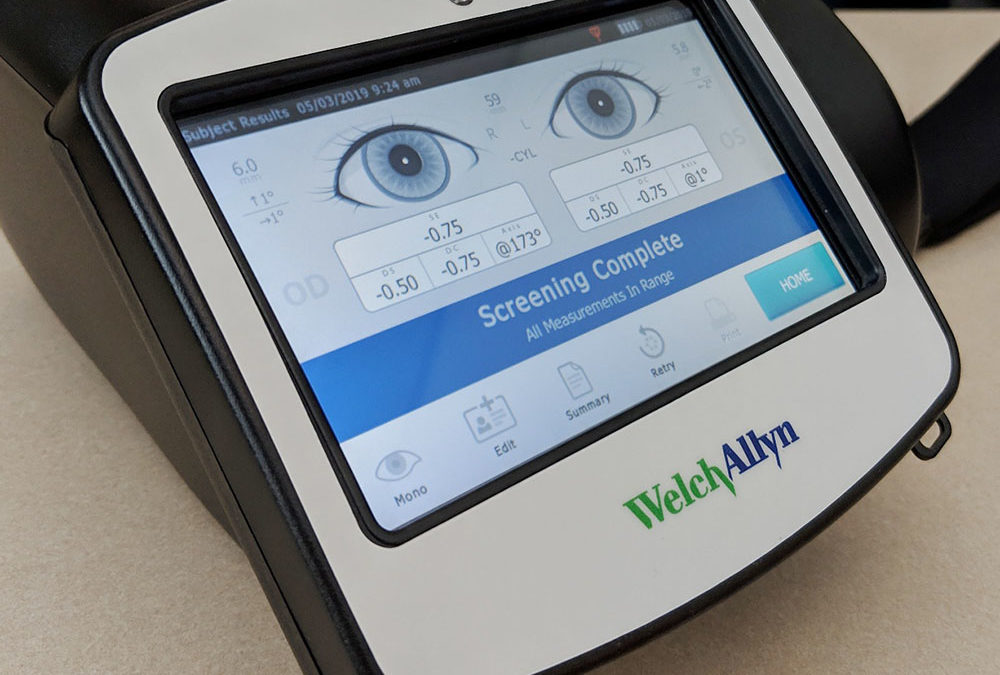With more than 7,000 eligible migrant students in the Southeast Washington region, ESD 123 aims to meet the health needs of all migratory students who may be missed by regular school screenings. To this end, ESD 123 is one of four ESDs managing the new Welch Allyn Spot™ Vision Screeners purchased by the Washington State Migrant Education Program (MEP) in partnership with the School Nurse Corps. ESDs 123, 105, 171, and 189 will each manage two of the eight screeners for use with providing vision screenings to migrant students.
Migrant students are defined as students who have moved during the previous three years for the purpose of finding seasonal or temporary work in agriculture or fishing. This mobile lifestyle can cause students to miss school health screenings at school and, as a result, not seek appropriate health care. While available to all migrant youth between the ages of 3 through 21, screenings will focus on students in 4th, 6th, and 8th-12th grades, which are not required by the state to run vision screenings.
“Kids in these grades might be missed, especially migrant students with high mobility,” says Juan Hurtado, ESD 123 Migrant Out-of-School Youth/Health Coordinator. “If they weren’t in school during screenings in required years, we want to catch those students in those grade levels.”
The Spot™ Vision Screeners measure eyes for signs of myopia or hyperopia (near- or far-sightedness), astigmatism, and other anomalies that require a referral. The screeners are easy to use and proving to identify potential vision issues early on with students. Whereas the referral process with vision screenings performed with traditional eye charts can take approximately 2 minutes per child, Wi-Fi connectivity and the ability to print referrals as you go shortens the referral process to 20 or 30 seconds, simplifying the process for school nurses and students.
The collaboration will launch at ESD 123 on May 9 with the first Spot™ Vision Screener Training presented by Mr. Hurtado and Leslie Stahlnecker, MS RN, School Health Services Administrator, who are coordinating these vision screenings in the region. Screeners will be available for reservation starting in the 2019-20 school year. School nurses and select migrant program employees will not only learn the logistics of reserving and operating the vision screeners, but also gain a foundational knowledge of the health barriers for migratory students and how best to serve their needs.



